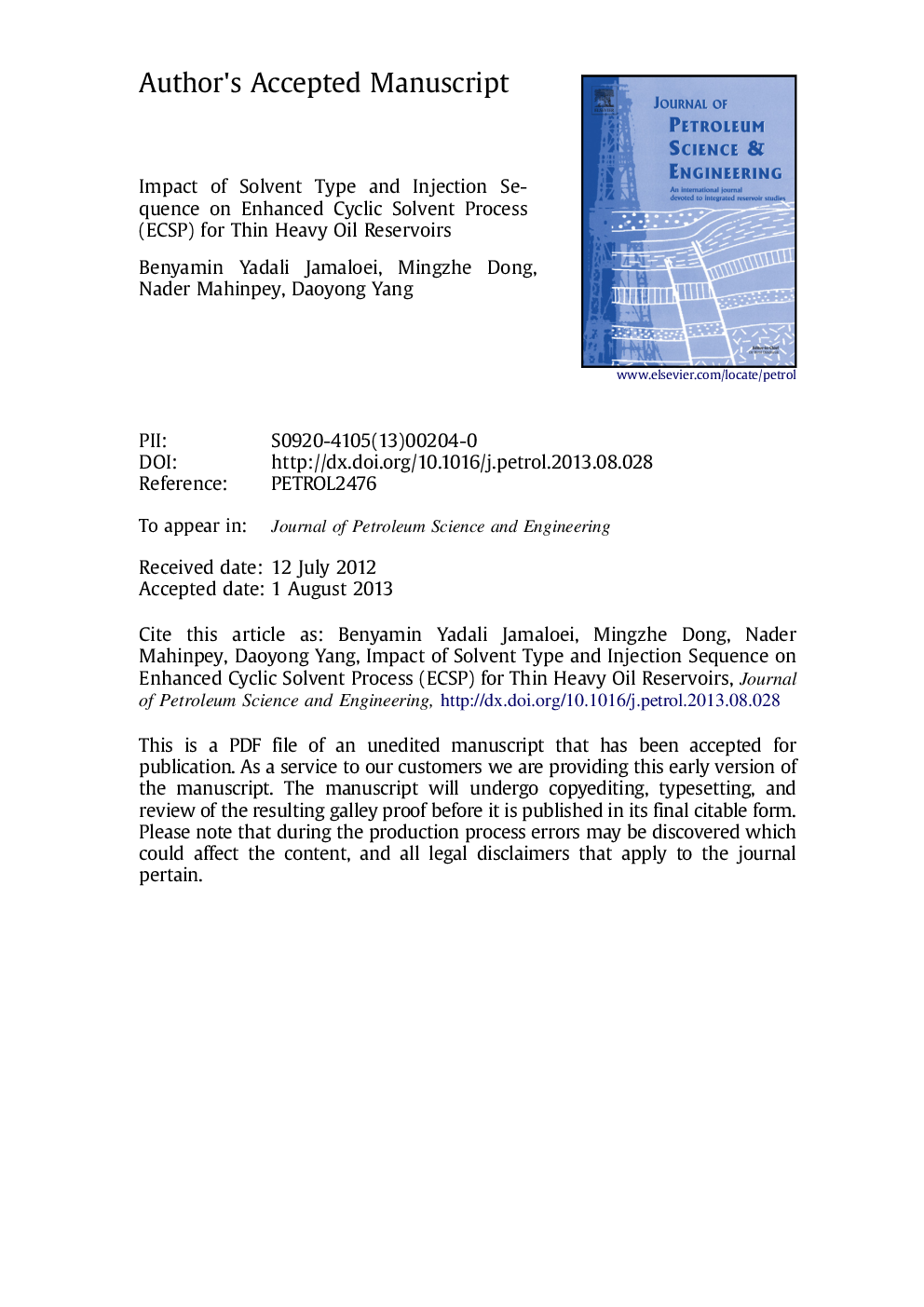| Article ID | Journal | Published Year | Pages | File Type |
|---|---|---|---|---|
| 1755203 | Journal of Petroleum Science and Engineering | 2013 | 41 Pages |
Abstract
A considerable portion of the western Canada's heavy oil resides in thin formations. In this situation, thermal methods cannot be used due to heat loss to overburden and underburden. Vapor extraction (VAPEX) fails because of inefficient gravity drainage and low initial production rate. Studies have been done on the cyclic solvent process (CSP) in an attempt to speed up the oil production rate in the solvent injection process. CSP performs poorly because the presence of continuous free methane saturation at the start of production cycles results in high gas mobility, and, consequently, quick methane production, quick pressure depletion, and a significant loss of oil viscosity reduction. As a result, the drive energy becomes depleted by methane production. Also, if low or intermediate initial production pressures are used, the methane solubility in the oil is not high, and the viscosity reduction is not significant. To resolve the above problems of CSP, Yadali Jamaloei et al. (2012) introduced a new process for thin reservoirs - Enhanced Cyclic Solvent Process (ECSP). In ECSP, two types of hydrocarbon solvents are injected separately, in a cyclic manner; one slug is more volatile (methane) and the other is more soluble (propane or ethane) in heavy oil and bitumen. The focus of this study is finding the optimum solvent injection sequence; this will be accomplished through examining the impact of the solvent injection sequence on the performance of ECSP, using different solvent pairs. The experimental results obtained from four series of ECSP tests, each consisting of six cycles, show higher oil recovery and production rate, and lower gas requirement and drawdown when methane is injected before ethane or propane. Wabiskaw formation in the Pelican oilfield in northern Alberta with 17 wells was chosen for performing simulation of ECSP. History matching was conducted for field-scale cumulative oil, gas and water production, and average reservoir pressure. Injection rate and injection time of methane and propane, soaking time and minimum well bottom-hole pressure in the methane-propane ECSP scheme were optimized to predict the field production performance of ECSP. Field-scale simulation revealed that the proposed methane-propane ECSP scheme is a highly effective method for improving heavy oil recovery in thin reservoirs.
Related Topics
Physical Sciences and Engineering
Earth and Planetary Sciences
Economic Geology
Authors
Benyamin Yadali Jamaloei, Mingzhe Dong, Ping Yang, Daoyong Yang, Nader Mahinpey,
